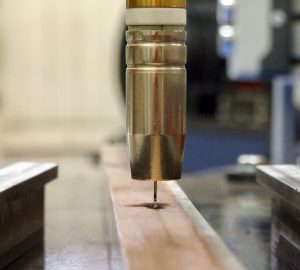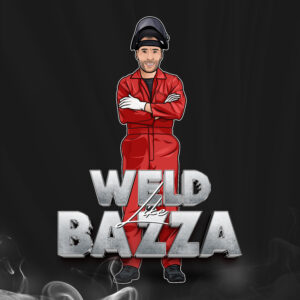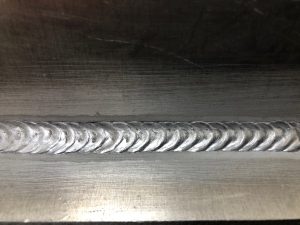A question we get asked regulary, What is needed to be a service engineer in the welding industry? Lets start right at the very start.
When I left school, I had already worked with my dad for many years during school holidays, after school, and on weekends. It just became normal. Once I officially left school, passing all my GCSEs, we started looking for suitable courses for my apprenticeship. To cut a long story short, Dad managed to get me on a special course designed for the apprentices of Vickers Defence. It was hard graft, serious study was required, and above all, I had to do in one day and one evening what the rest had four days to do.
This aspect of the course provided a very broad base in engineering studies: drawing, milling, turning, grinding, welding, engineering fundamentals, as well as maths and science qualifications and skills required for the industry and exams that would follow.
After passing these exams with the highest grades possible, I was sent to study electronics and industrial electrical. This was great as I was already working on industrial power systems since these are what most welding machines and automation systems are connected to.
After I finished my apprenticeship, the hard work really started. The business was growing, and I was straight out on the road as an engineer for the welding industry. Calibration, servicing, repairing, designing systems, fault-finding—it was all in a day’s work and still is, but the learning and qualifications never stop.
It wasn’t long before my dad and I enrolled on our 16th edition wiring regulations course together. This was another truly fantastic qualification that backs up our knowledge on the electrical side. After all, how can you repair an electrical machine like a welder if you don’t have a full understanding of the power systems it’s connected to? After this, we did our PAT testing qualification because we really liked our tutor, who would regularly make jokes about his wife!
It wasn’t long before I was over in Holland at Hypertherm HQ, regularly participating in training on the Hypertherm cutting systems. I did then, and still do now, carry out tasks and work for them directly as well as my own service and repair work. I also spent time with the German EWM engineers, which gained me great knowledge and respect in the industry.
As time moved on, we became members of the British Standards Institution. Although costly for a small business, this helps us receive up-to-date changes in legislation, requirements, and regulations so we can constantly stay ahead of the curve.
We are very lucky as a company as we strongly believe in doing things the correct way. Years ago, before the standards for the calibration and validation of welding equipment even existed, Dad helped write and design a calibration protocol for the mining industry in the UK so they had a standard to work to. When the first-ever British standard was released, it was amazing how almost identical our method and protocol of works was to the new standard that had only just been released. Fancy that?
As a company, we hold many qualifications. Personally, I regularly take exams, usually on a three-month basis, for a particular sector of the industry we work in.
Additionally, we hold qualifications in the safe handling of ozone-depleting gases, CP7 gas inspector certification, electrical wiring standards, as well as many manufacturer and customer-specific qualifications that are required when working at such high levels of industry.
So, back to the question of what is needed to be an engineer in the welding industry.
In my personal opinion, you need to have fulfilled a very good and broad-based learning in all areas of engineering, then move into the electronic, electrical, and electromechanical areas. If you’re hungry for it like me, the learning and qualifications never end.
I really do think many people fall into the welding industry with little knowledge, then call themselves experts. I have seen many engineers who claim to be expert engineers for the welding industry who can’t even weld. This amazes me as the welding machines today require far more than a safety test when put together. How can you tell if the welding machine is working properly if you cannot read and understand the customer’s WPS and put the weld down exactly to the customer’s requirements? What about if the fault only appears in a particular synergic setting and process, and you don’t even understand how that process should react when welding. ANYBODY can read the sales data and repeat some general knowledge, but when it really counts, is that enough?


